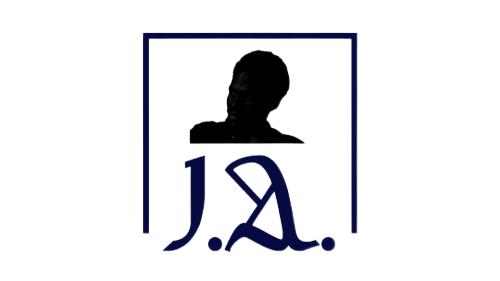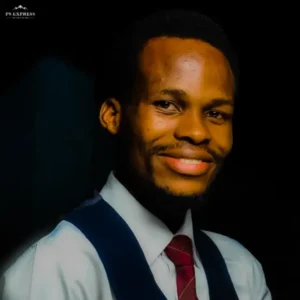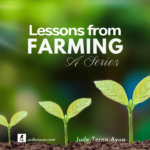The SIP in January 2023 was my first most fulfilling experience since the beginning of my studies at the Harvard Divinity School. I felt so fulfilled because it was the first course I was committed to, not for grades, since it is a non-graded course, and it impacted me greatly. I participated fully, curiously, and interactively.
I am so grateful to have attended the session on Day One. I can say without doubt that it met my expectations for the SIP. I was already enthusiastic about the coming days.
I was intrigued and inspired by the conversations for the day, and the insightful perspectives about purpose (dharma) and their practical application in leadership, which the various speakers and facilitators shared. I believe that if every leader should understand purpose, both at the personal and organizational levels, they will effectively succeed in their leadership. The most outstanding points for me were the ability of a leader to balance the personal and ultimate (higher) dharma in their decision making, the ability to make courageous decisions, and the ability to break out from the usual to achieve the ultimate purpose. I left with two questions, the second which came up in our breakout group: first, what should determine a person’s purpose or dharma? And second, what is the distinction between religion and spirituality?
The discussions for Day Two touched me personally! Beginning with the morning meditation with Angie, I experienced for the first time in a while, the ability to connect with my inner self without the fear of the different thoughts that popped up in my mind as I closed my eyes. I was able to focus and avoid distracting thoughts. This morning exercise also helped me to remain conscious throughout the rest of the day.
The session with Professor Ali on ‘Poetic Justice in Islam’ was a great exposition. The distinction between the ‘loud’ and the ‘silent/silenced’ Islam was particularly interesting. While this distinction may be based on the perspectives of non-Muslims, as Ali explained, I wonder[ed] if these perspectives are [not] based on certain observed realities, such as what informs the opinion of this distinction being the way those within the tradition live out their faith based on their various interpretations. How then may these various interpretations— for those within the faith— and the different perspectives— for those outside the faith— be reconciled to ensure non securitization of those perceived as ‘loud Muslims’ and ensure peaceful coexistence?
Going to Ned’s session on our interaction with the natural environment, I realized how absentminded and unaware I have been. I began to think deeply about the natural environment, seeing even the nonhuman creatures: trees, birds, grasses, and more as my kin in creation, and thus, treating them with care.
Next was the importance of spirituality in public health, in the session facilitated by Lisa Miller, Rev. Walton and Dr. Cole, which for me was the peak of the day. These quotes from the speakers inspired me:
“These church folks think they are the best humans trying to be spiritual…Think of yourself as a spiritual being trying to be more human,” Rev J. Walton from his mother; “Disease may be physical, but illness is social, so healing must also be social,” Walton.
“We need to hear more about the ‘why’ as well as we talk about the ‘what’ and ‘how.'” – Dr Cole.
I learned from these, the values of spirituality, purpose, and community.
Lastly, participating in the River of Life exercise helped me reflect on the specific people, institutions, and values that have, and are still shaping my life. I acknowledged the impact they all have made and are making in my life.
Day Three: The major takeaway for me from today’s sessions was the ethical dilemma leaders face in decision making. The story of the two midwives in Exodus 1 & 2, how they demonstrated courage to align themselves with godly values as against the orders of the king is illustrative of this. They could have been killed, but they acted bravely, answering to the greater good. This resonates with the philosophy of Gurcharan Das who shared on the first day how the means to achieving a good purpose do not matter as much as the outcome, and Laurie Patton who shared her experience as a university president when she had to make a decision concerning financial aid.
Another lesson I learned today was the importance of balance in decision making. The lessons from the life of King Ashoka as shared by Jonathan Rose and Charlie Hallisey on transgenerational change, for me points to the need of balancing between the decisions we make in the present with their consequences in the future. In addition, was the deliberation on the question, “Can we be ethical in business and succeed?” which Ephraim Mernick led. From this also, I saw the interconnection with the story of the midwives about ethical dilemmas in decision making. Jonathan’s example of Gate not being able to balance business and philanthropy is quite practical.
I believe that for leaders to serve their purpose, they must imbibe balance in decision making to resolve ethical dilemmas in the interest of their followers.
Day Four opened with a powerful sermon—the Welcome Address that touched everyone and moved some to tears—from Dean Teddy of the Ministry Studies at the Divinity School. His core message was “love is enough!” Key takeaways from this message were that one cannot be spiritually mature until one is emotionally mature; spiritual practices are not all about transcendence, mystics, they are the simple practices around us: love, forgiveness, caring. Dean Teddy emphasized the importance of accountability in relationships, using a family story for illustration.
The session with Monica Rex and Roonam Sacheti on ‘Living Your Values’ further explained practically the values’ we learned about in Day Three. Martha Minow and Matt Potts talked about ‘Forgiveness in an unforgiving age,’ which the main take-home for me was that forgiveness is practice; it is actual, and real.
The conversation with Harvard College Dean Rakesh and Michael Lamb, on ‘What is the Purpose of the University?’ focused mainly on what it means to succeed as a person in life beyond university education. Dean Rakesh suggested that there should be a “pluralistic approach to the definition of success” to not have a narrow perspective of what success is. In relation to the purpose of education, whether it serves only the student and not the larger society, Lamb made a significant distinction about one “learning how to serve and learning how to live” and that one must know when to use both effectively. That day, I asked two questions: to what extent should the university prepare students for life after school? And what role do/should universities play in political leadership?
The peak of the Day and indeed the Week was the ‘Reflections on Leadership with a Spiritual Life’ with Harvard President Lawrence Bacow and Harvard Divinity School Dean David Hempton. This session was a grand finale for me. I felt excited to see President Bacow for the first time, having been receiving his emails since my admission into Harvard, ten months earlier. The lessons that these two great leaders shared from their personal and leadership experiences were powerful and inspiring.
President Bacow talked about the importance of marriage, appreciating his wife. “If you are lucky enough to have the best spouse, they bring out the best in you,” he said.
The President narrated his personal story and career journey, noting how he and Dean Hempton have certain shared experiences—both were born in the same year, coming from a history of groups that faced existential crisis, Bacow being Jewish and Hempton, Irish; and would both be retiring on the same day. These experiences, Bacow said, help shape one’s world. From his career journey, President Bacow shared that “[you] can only know a career in retrospect, on the day you retire;” his career journey made more sense to him as he approached retirement.
On leadership, President Bacow shared that one can only lead effectively if one is optimistic; if one is not managing change, one is only presiding and not leading; and to make a good leader, one must be a good follower. This is a quote that he said inspired him: “Who is wise? He who learns from all people. Who is wealthy? He who rejoices in his portion. Who is powerful? He who exercises self-control.”
Dean Hempton talked about the importance of gratitude: “[It] creates its fruits in life; grateful people are happier people.” On success, Hempton said that you do not achieve it at the expense of those you love. And sharing his leadership experience, he said that “As a leader, you need to model behavior that you wish to see in others.”
One question that I had had in mind while registering for the SIP and which I kept in mind all through—I do not think any of the speakers answered it to my satisfaction—until I finally had the opportunity to ask President Bacow was, should the personal faith tradition [or religious belief] of a leader inform their decision making in a pluralistic community? I referred to an instance where in the same country, one state governor imposes the use of hijab by female students in secondary schools including non-Muslims, because the governor is Muslim, and one in another state proscribes the use of hijab even for Muslim women, because the governor is non-Muslim. The President responded that while a leader’s faith and spirituality are important in their life, they must also take into account the specific context in which they are leading.
I remain ever grateful for participating in this program. I am living by the relevant lessons I learned from there. I also appreciate the people I met during the program, and the relationships created







